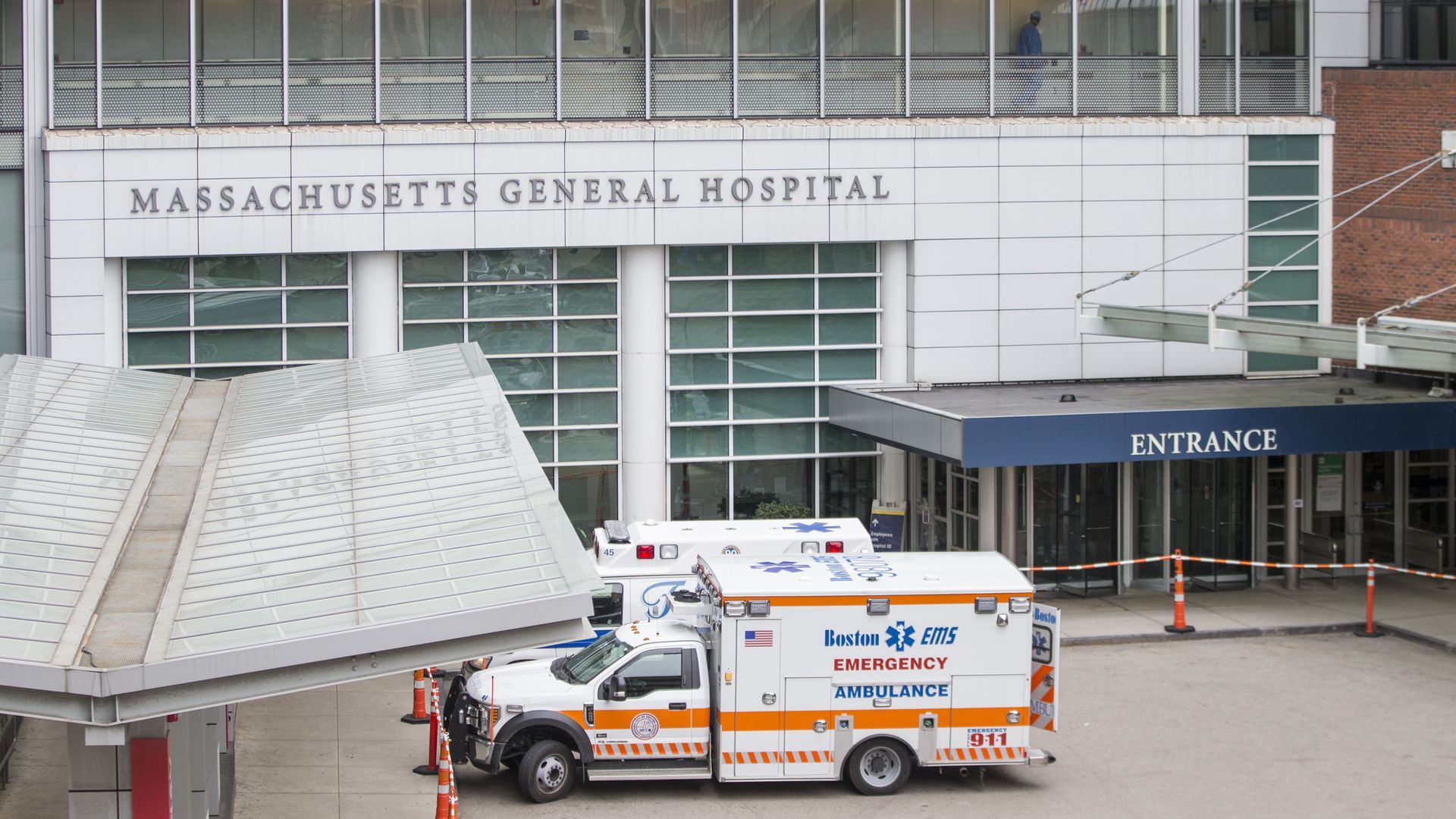| |
| |
| |
| Presented By the Healthcare Distribution Alliance |
| |
| Axios Vitals |
| By Tina Reed ·Jan 26, 2022 |
| Good morning, Vitals readers. Today's newsletter is 792 words or a 3-minute read. |
| |
| |
| 1 big thing: Why COVID treatments are so hard to get |
 |
|
| Illustration: Brendan Lynch/Axios |
| |
| Antiviral COVID treatments are in short supply — and that's only one of several barriers to access for high-risk patients, Axios' Caitlin Owens writes. The big picture: Even when supply ramps up, it will still be tricky to connect some of the most vulnerable patients to the pills without changes to the process. Why it matters: Recently approved antivirals reduce the risk of hospitalization and death by up to 89%. - But patients have a relatively short window to begin the treatment regimen once they're diagnosed, meaning that access to timely testing, a provider who can write a prescription, and the pills themselves are all critical.
Between the lines: These three distinct steps each come with their own difficulties, making the path from diagnosis to treatment a convoluted race against the clock. Once someone tests positive, they need to get a prescription for an antiviral from a provider. - Some providers aren't yet writing prescriptions for the antivirals, said Leana Wen, an emergency physician and a professor at George Washington University, and many patients don't know where to go to get a prescription.
- And finally, once a patient has a prescription, they have to find the pills themselves, which are in short supply around the country. GoodRx recently launched a website that tracks antiviral availability.
What we're watching: In the short-term, the most at-risk patients should make a plan for how they'll access antivirals should they test positive for COVID, Wen said. - But in the longer term, when more pills are available to a larger pool of high-risk people, one way to ensure the right people get access to them is to package all of the steps together.
- "Ideally, this could all be streamlined into one visit," Wen said.
Share this story. |
    |
| |
| |
| 2. Uber for nurses |
 |
|
| Illustration: Sarah Grillo/Axios |
| |
| Amid a nationwide nursing shortage and burnout crisis, a new generation of tech companies that essentially allow nurses to join the "gig economy" say they could be part of the solution. Why it matters: While these companies existed pre-pandemic, their ranks are growing as hospitals try to more efficiently fill shifts and exhausted workers look for more flexibility, they say. "We're trying to keep these people in the industry," Will Patterson, CEO of CareRev, a healthcare staffing platform, told Axios. Go deeper. Related: Rich countries lure health workers from low-income nations to fight shortages, the New York Times reports. |
    |
| |
| |
| 3. Regulator reprimands Mass. hospital system |
 |
|
| Photo: Blake Nissen for The Boston Globe via Getty Images |
| |
| Mass General Brigham must submit a plan to lower rising costs that stem from the hospital system's expensive care, the Massachusetts Health Policy Commission said yesterday. Why it matters: This commission is viewed as a potential template for other states to regulate rising hospital and physician spending, reports Axios' Bob Herman. - This is the first time the agency has taken action on a hospital system to temper costs.
What they're saying: Mass General Brigham — the dominant, tax-exempt academic hospital organization in Massachusetts with $16 billion of annual revenue — has the highest prices in the state. - The system's market power has led to residents paying a lot more in health insurance premiums and taxes, and that higher spending "raises significant concerns" and is "likely to continue to impact the state's ability to meet" a benchmark of lower cost growth, the commission said during Tuesday's meeting.
The other side: Mass General Brigham would not make anyone available for an interview, but said in a statement it treats "the sickest and most complex patients," and the commission's "refusal to acknowledge the acuity of our patients in its judgment of health care spending is short-sighted and unfair, especially to patients." |
    |
| |
| |
| A message from the Healthcare Distribution Alliance |
| Why healthcare distributors are key partners in fighting COVID-19 |
| |
 |
| |
| Distributors work with federal, state and local governments to deliver vaccines, treatments and supplies where they are needed. What this means: While navigating the demands of COVID-19, we ensure healthcare products get to providers and patients. Health Delivered. |
| |
| |
| 4. Long COVID could teach us about other diseases |
 |
|
| Illustration: Allie Carl/Axios |
| |
| One of the hallmarks of the disorder that's become known as long COVID — an infection that ultimately "broke" the immune system — could help spur new solutions to old diseases. Driving the news: Next month, Georgetown University is convening researchers from different disciplines studying autoimmune disorders — including fibromyalgia, Lyme disease, neuropsychiatric disorders and long haul COVID — to "compare notes." What they're saying: "The medical profession was dismissive of a lot of these conditions," said Gary Kaplan, a clinical associate professor at Georgetown University and founder of the Kaplan Center for Integrative Medicine. - The rapid expansion of patients with long COVID symptoms "woke up the medical profession and it said: 'Oh, wait a minute, these things are real and these things look exactly like this. Maybe we need to think about this differently,'" Kaplan said.
|
    |
| |
| |
| 5. Business notes |
- Uber just hired its first chief medical officer. (Forbes)
- Change Healthcare is considering divesting some of its assets in preparation for its $8 billion acquisition by UnitedHealth Group. (Bloomberg)
- After several Wisconsin health care workers were blocked by their previous employer from taking jobs at an Ascension hospital, a judge stepped in. (Post Crescent)
- HHS will release $2 billion more in provider relief funds this week. (Modern Healthcare)
|
    |
| |
| |
| A message from the Healthcare Distribution Alliance |
| Delivering more than 10M medicines, vaccines and supplies daily |
| |
 |
| |
| Distributors serve as a vital link between manufacturers and providers — moving billions of medicines, vaccines and supplies every year. We provide the logistics expertise, inventory range and technology required to keep pharmacy and hospital shelves stocked across America. Learn more. |
| |
 | Bring the strength of Smart Brevity® to your team — more effective communications, powered by Axios HQ. | | |








No comments:
Post a Comment